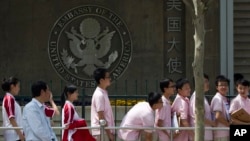Student Union
Proposed Legislation Would Give Afghan Scholars Special Visa to US

A congressman from California has introduced legislation that would give Afghan Fulbright scholars special immigrant visas.
The legislation would automatically issue a special immigrant visa to any Afghan who lived in the United States as a Fulbright scholar and to their immediate family members to help them "escape persecution by the Taliban and relocate safely to the United States," according to a statement from the office of U.S. Representative John Garamendi, a Democrat.
"Fulbright Scholarships are one of the most vital U.S. cultural exchange programs that help to improve intercultural relations, diplomacy, and coordination between the United States and other countries," Garamendi's statement read.
"This is the right thing to do for our Afghan allies who stood with the United States against the Taliban and the terrorists responsible for the 9/11 attacks."
The proposed legislation is called the Special Immigrant Visas for Afghan Fulbright Scholars Act of 2021, or House Resolution 5482.
It would issue a special immigrant visa to any citizen or national of Afghanistan, and their legal spouse or children, selected on or after October 7, 2001, for the following State Department-sponsored educational and cultural exchange programs:
-
Bureau of Educational and Cultural Affairs Exchange Programs, including the Fulbright Scholar-in-Residence Grant Program, the Fulbright Foreign Language Teaching Assistant Program the Hubert H. Humphrey Fellowship Program.
-
Any other similar educational or cultural exchange program administered by the State Department involving travel to the United States and spending significant time living, working or studying therein.
Last month, the Institute of International Education (IIE) announced plans to award scholarships to 10 former American University of Afghanistan (AUAF) students so they could "safely reconnect to their studies at a college campus abroad." AUAF was shut down by the Taliban-led government after the U.S. withdrew forces in mid-August.
IIE also announced other programs Afghan students could explore for financial assistance, including the Scholar Rescue Fund, which funds fellowships for "threatened and displaced" students at partnering colleges and universities around the globe. Eighteen emergency scholarships have been awarded, and future scholars are being identified.
Other programs available to help Afghan scholars and refugees are as follows:
-
The Emergency Student Fund (ESF), which provides grants to international students enrolled at colleges and universities in the U.S. "when natural disasters, war or other crises in their home countries threaten their education," according to IIE. Since September 20, the ESF has funded 80 Afghan students on U.S. campuses who were experiencing financial difficulties.
-
The Platform for Education in Emergencies Response, an online clearinghouse that connects refugees and displaced students with scholarships and online learning. Students from Afghanistan are eligible.
-
The Artist Protection Fund (APF), which will award fellowships to two threatened Afghan artists from any field of practice and place them "at host institutions in safe countries where they can continue their work and plan for their futures."
-
The Odyssey Scholarship, which was awarded to 10 Afghan students to allow them to study "in the safety of a college campus abroad." It enables "motivated and qualified refugees or displaced persons to pursue fully funded undergraduate or graduate programs throughout the world."
Columbia University in New York offers full scholarships every year for refugees and other displaced students. The Columbia University Scholarship for Displaced Students (CUSDS) was launched in December 2019 and has committed up to $6 million in scholarship money for up to 30 students so far.
To be eligible for the CUSDS, applicants must apply to and be accepted by one of the degree programs listed on the website. Acceptance requirements and application deadlines differ depending on the school and degree program.
See all News Updates of the Day
- By VOA News
International students discuss US campus culture shock

International students at De Anza College in Cupertino, California, talked about culture shock in an article in La Voz News, the student newspaper.
"It felt like a major culture shock. Everything was so different, from academics to mannerism," said a student from Mexico.
Read the full story here.
These are the most expensive schools in the US
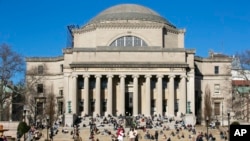
High tuition costs along with housing and food expenses can add up for students at U.S. colleges and universities.
MSNBC looked at the most expensive schools in the country, with one costing more than $500,000 for a bachelor’s degree. (June 2024)
Uzbekistan students admitted into top US universities
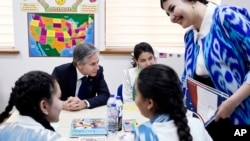
Students from Uzbekistan are among the international students admitted to top colleges and universities in recent years.
Gazata.uz profiled some of the Uzbekistan students attending Harvard, Brown, Princeton and other U.S. universities. (June 2024)
- By Stella Hsu
Reports of visa checks, deportations worry Chinese STEM students in US
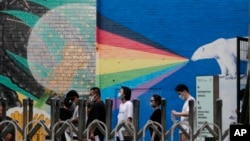
Geopolitical tensions and growing competition in tech between the United States and China appear to be spilling over into academia despite commitments from the world’s two biggest economies to boost people-to-people exchanges.
The United States remains the top choice for Chinese students seeking to study abroad with nearly 300,000 studying in American colleges and universities during the 2022-2023 school year. But reports of some cases that students and professors are facing extra scrutiny while passing through immigration and the deportation of others are raising concerns.
For Chen Xiaojin, a doctoral student studying semiconductor materials at a university in the Washington, D.C., metropolitan area, it has been six years since she returned to her hometown of Beijing.
At first, it was the COVID-19 pandemic that kept her from going home. But over the past two years, she has been deterred by accounts of Chinese students majoring in science and engineering being required to reapply for their visas upon returning to China.
She also says she is worried by reports over the past six months of Chinese students being deported, even at nearby Dulles Airport.
"My current research is relatively sensitive, and my boss [adviser] is getting funds from the U.S. Department of Defense, making it even more sensitive,” she told VOA. "I am afraid that I won't be able to return after I go back [to China]."
Chen says that if she did return to China, she would have to apply for a new visa.
In a report late last month, Bloomberg said it had found at least 20 Chinese students and scholars with valid visas who were deported at U.S. Customs since November and barred from reentry. The U.S. Customs and Border Protection Agency does not release relevant data.
Immigration attorney Dan Berger represented one Chinese student who was deported late last year. He tells VOA Mandarin that the student studied biological sciences at Yale University and was about to complete her doctorate.
She visited her family in China and got a new visa but was deported by customs at Dulles Airport and barred from reentering the country for five years. Berger said he did not see anything suspicious in the transcript of the conversation between the student and the customs officer.
"We have seen what seems like a pattern over the last six months of Chinese PhD students being turned around…. more than I've seen in quite a while," he said.
Matthew Brazil, a fellow at the Jamestown Foundation, said neither country seems willing to explain the situation. However, he believes that in most cases, the United States must have valid reasons for blocking visa holders from entering the country.
In some cases, the student’s background may not match what is written on the visa application. In other cases, customs agents may also find something that the State Department missed, and once they see it, they are responsible for taking action.
"I wish the Chinese side would be specific about their students who were refused entry,” he said. “The fact that both sides are mum on details and that the Chinese side is engaged with the usual angry rhetoric means that each has security concerns. And that says to me that there was good reason for the U.S. to stop these particular applicants."
Brazil also sees a connection between the entry denials and export control regulations issued by the United States in October 2022 that restrict China's ability to obtain advanced computing chips, develop and maintain supercomputers, and manufacture advanced semiconductors.
U.S. Customs and Border Protection is one of the law enforcement agencies authorized to investigate violations of export control regulations, he said.
"Beijing's intelligence agencies are known to focus attention on PRC [People's Republic of China] students and scientists headed abroad who study or work on dual-use technologies controlled under the Export Administration Act — compelling Chinese students and scientists to report on what they've learned when they return to China on holiday,” he said. “This has been true for decades."
Bill Drexel, a fellow for the Technology and National Security Program at the Center for a New American Security, said the U.S. government did find some cases where students tried to steal strategic technology for China.
"I think it would both not be surprising that they found some really questionable or incriminating evidence for some students,” he said. “It would also not be surprising if, in their hunt for really solid evidence, they also may have made some mistakes on other students.”
Drexel adds that “it’s just kind of an unfortunate fact of the time that we live in and the tactics that the CCP uses when it comes to these measures."
In a post on X in early May, U.S. ambassador to China Nicholas Burns tried to dispel concerns about visas and entry to the United States for students and scholars. In the post, he said "99.9% of Chinese students holding visas encounter no issues upon entering the United States.”
In an interview with The Wall Street Journal Monday, Burns said it is China that is making it impossible to promote people-to-people ties. Burns told the Journal that students attending events sponsored by the United States in China have been interrogated and intimidated.
He also said that since U.S. President Joe Biden and China’s leader Xi Jinping held their summit in San Francisco last year, China’s Ministry of State Security and other agencies had interfered with Chinese citizens’ participation at some 61 events.
At a regular briefing on Wednesday, Chinese Foreign Ministry spokesperson Mao Ning dismissed those accusations, saying that they did not “reflect reality" and that went against key understandings reached by both countries’ presidents in San Francisco.
“The United States, under the pretext of 'national security,' unjustifiably harasses, interrogates, and deports Chinese students in the U.S., causing them significant harm and creating a severe chilling effect,” Mao said. “The image of the United States in the minds of the Chinese people fundamentally depends on the actions of the United States itself.”
Drexel said he believes Burns’ comments about visas and students' willingness to study in the U.S. still ring true.
“On balance, it's still the case that American universities are overwhelmingly warm towards Chinese students and want them in large numbers," he said.
However, Berger, the immigration lawyer, is concerned about the chilling effect recent cases involving Chinese students could have.
"In general, we are being more careful about advising Chinese graduate students in STEM fields about traveling and letting them know that there is some small risk,” he said.
Even though the risk is small, it does seem to be real at the moment, he said.
Adrianna Zhang contributed to this report.
US federal judge blocks new regulation targeting for-profit colleges
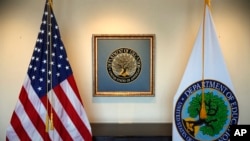
A federal judge in Texas has blocked a regulatory provision targeting for-profit colleges that was scheduled to take effect in July 2024.
Times Higher Education reports that the rule, which would affect student loans, was challenged by for-profit institutions. (June 2024)






